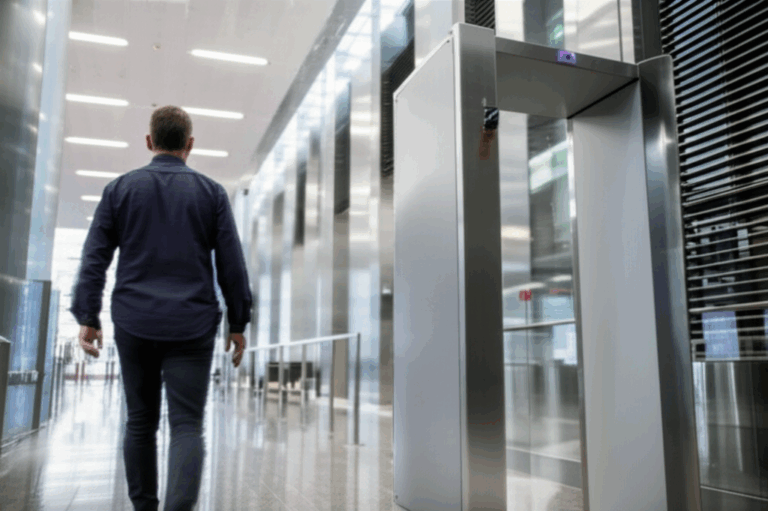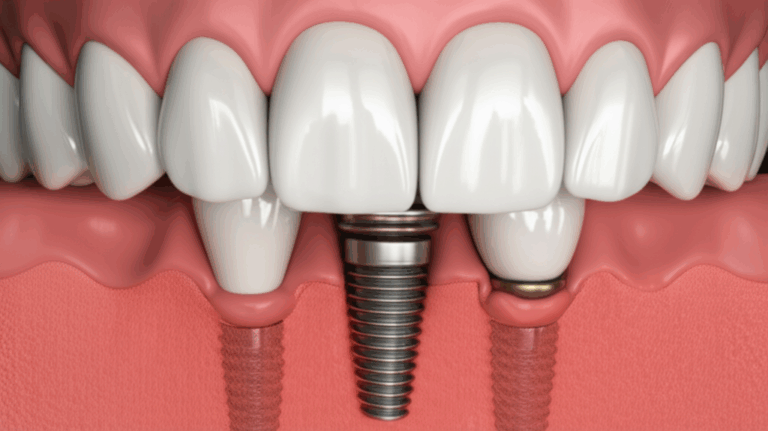
Do Dental Implants Hurt Forever? Understanding Pain, Recovery, and Long-Term Comfort
Dental implants are a common way to fix missing teeth. But a lot of people ask: Will dental implants hurt forever? This article tells you the honest truth about what pain to expect, how long it really lasts, and what to do if something doesn’t feel right. Whether you’re thinking about getting implants or are already healing, this guide will help you know what’s normal, how to take care of your mouth, and how you can keep smiling without pain for many years.
Table of Contents
What Are Dental Implants?
A dental implant is a small piece made from titanium or another strong metal that replaces the root of a lost tooth. A dentist or gum doctor puts the implant into your jawbone. When your mouth has healed enough, a middle piece (called an abutment) and a crown (the part that looks like your tooth) are put on top of the implant.
Most folks go for dental implants because they last long, look just like a real tooth, and feel almost the same as one. You can use them to chew, bite, and show off your smile. But with any surgery, you might worry about pain. Let’s talk about what is true and what is not.
Do Dental Implants Hurt Forever?
Here’s the quick answer: No—dental implants do not hurt forever. That idea is just a myth. Over 95% of people who get dental implants do not get long-lasting pain. You might have some pain right after the surgery, but that is your body fixing itself.
Think about scraping your knee. It hurts for a few days, gets better, and then you forget it ever happened. Pain from dental implants is just like that. When you work with a good dental team, you heal fast and ongoing pain is very rare. Most people say their mouth feels normal and pain-free after they recover.
What Kind of Pain Should I Expect After Surgery?
Getting a dental implant is kind of like building a new base for your house. Your bone and gums need time to get used to it, but the pain doesn’t last very long.
What happens right after the implant surgery?
- First few hours: You might not feel anything. That’s because you had numbing medicine.
- After the numbness goes away: You may have some soreness, throbbing, or a dull ache. You might see some swelling or bruises.
- First 24 to 48 hours: This is when it might hurt the most. It can feel sore, pressuring, or throbbing.
Everyone is a little different. Some adults just feel a little extra sore. Others might need some pain medicine for a couple of days, like ibuprofen or acetaminophen. A few might get a strong medicine from the dentist, but most people don’t need that for long.
You might notice:
- Swelling in your cheeks or jaw
- Bruises on your gums or jaw
- A little bleeding
- Stiff jaw
These things are common and should go away soon.
How Long Does Dental Implant Pain Last?
This is the big question for most people.
- Bad pain from surgery usually lasts about 3–7 days.
- Little aches or sore feelings might last 1–2 weeks.
- By the third week, most people are eating and talking like normal.
Think about scraping your knee again—it’s sore at first, then gets better. Once in a while, it might take longer if it gets infected or you mess with it. It’s the same with implants: if you follow what your dentist says, you’ll feel better faster.
Table: Pain Timeline After Dental Implant
| Time Frame | What to Expect | What to Do |
|---|---|---|
| 0 – 48 hours | Most pain, swelling | Use cold packs, rest, take meds |
| Day 3 – 7 | Pain goes down | Eat soft foods |
| Week 2 | Might be a little sore | Slowly start chewing normal |
| After 2 weeks | Hardly any pain | Go back to normal brushing |
Is It Normal to Have Pain Later?
You might wonder, Will it hurt months or years later? For almost everyone, the answer is no. Once your mouth heals and your jawbone grows around the implant (this is called osseointegration), you shouldn’t feel pain anymore.
Let’s compare:
- Pain right after surgery (expected): Soreness, aches, swelling.
- Pain months or years later (not expected): If you have sharp or strong pain months later, it’s not normal.
Dental implants are made to feel like a real tooth. You might even forget it’s there! If pain starts months or years later, go to your dentist. It might mean something is wrong and needs fixing.
What Are the Signs of a Problem?
Most people do just fine, but sometimes things don’t go as planned. Watch out for these problems so you can get them fixed early.
Signs of Infection
An infection can cause:
- Strong or throbbing pain that won’t quit
- Swelling that gets worse after a few days
- Red, puffy, or bleeding gums
- Bad taste or bad smell
- Pus near the implant
If you see this, call your dentist fast. The sooner you get help, the better.
Nerve Trouble
Nerve trouble is rare, but it can happen. If your implant is near nerves in your lower jaw, you might feel:
- Numbness in your lips, chin, or tongue
- Tingling or “pins and needles”
Most times, this goes away on its own. Sometimes, it can last longer. Your dentist might order a picture (X-ray) to check.
Gum Infection (Peri-Implantitis)
This means gums are infected around the implant:
- Red, swollen, or sore gums
- Gums bleed when you brush
- Gums look pulled away from the implant (your dentist checks this)
- Pain or bone loss if not fixed
This happens more often if you have poor brushing habits, smoke, or have health problems like diabetes.
Implant Failure
If your implant feels loose, shaky, or hurts when you chew, it might not have stuck to your bone right. Or the top part (abutment or crown) might be broken. This is rare, but needs help right away.
Other Reasons
Pain can also come from:
- Grinding your teeth at night
- Bite is off (top tooth hits your implant wrong)
- Sinuses acting up (for top jaw implants)
Your dentist will help find and fix the problem.
How Should I Care for My Implant?
Good news—taking care of a dental implant is easy. After a bit, it just becomes a normal part of your day.
How to Take Care at Home
- Brush your teeth and implant two times each day.
- Floss around the implant and your gums. You might need special floss or a tiny brush.
- Rinse with warm salty water if your dentist says it’s okay.
Eating and Drinking
- Eat soft foods for the first week (like eggs, soup, pudding, or mashed potatoes).
- Drink lots of water.
- Skip really hot or spicy foods (your gums are sore).
- After healing, you can eat almost any food again.
Seeing the Dentist
Regular check-ups with your dentist or dental team keep things healthy. They’ll:
- Take X-rays to look at your jawbone
- Clean spots you might miss
- Watch for warning signs early
If you need fixes—like crowns or bridges—a china dental lab can help make custom work.
What Makes a Good Dental Implant Experience?
Not all dentists or implants are the same. Here’s what to look for:
- Experienced Dental Team: Pick a dentist, gum doctor, or mouth surgeon who does a lot of dental implants.
- Clear Communication: Find a team who explains the surgery, what to do after, and what you should feel.
- Modern Tools: Dentists using things like 3D pictures or digital labs can make your implant fit better.
- Check-up Visits: Good care isn’t over after surgery. Regular appointments catch problems early.
Tip: Always ask if they can show before-and-after photos or reviews from other patients!
What Should I Do If I Still Have Pain?
If you still hurt after two weeks or more, don’t just hope it will go away. Here’s what to do:
Often, a quick trip to your dentist is all it takes to fix the issue. It might just need a little cleaning or bite adjust. Sometimes, you might need a new crown, and a crown and bridge lab can help make one.
Remember: most implant problems are easy to fix if you act soon.
Frequently Asked Questions
Is it normal to have pain months or years after a dental implant?
No, not normal. If you feel pain a long time after healing, get it checked out. It could mean infection, something is loose, or your bite is off.
What should I do if my dental implant feels loose?
Call your dentist. A loose implant could mean an issue with your bone or the top parts.
Can dental implants cause nerve issues forever?
Very rare, but sometimes numbness can last a long time if a nerve was hurt. The chance is low if your dentist plans well and checks X-rays.
How do I keep my dental implant healthy for years?
Brush and floss every day, see your dentist for check-ups, and don’t chew hard things (like ice) or smoke. Good care means it can last 10 years or even longer!
Important Things to Remember
- Dental implants do not hurt forever. Most people only hurt for a week or two after surgery.
- Short-term pain is normal. Long-lasting pain means you should see the dentist.
- Good brushing and check-ups keep your implant feeling great.
- Pick a dentist who knows what they’re doing and a good lab for the best results.
- If you feel pain, swelling, or think something is wrong, call the dentist. Don’t wait.
- Take care of all your teeth and gums—not just your implant—for a healthy, happy smile.
For more about dental implants, bite troubles, or fixes like bridges or dentures, take a look at trusted places like a digital dental lab or read up on dental problems. Great work and good care are just a call away.
References:
- American Academy of Implant Dentistry
- Journal of Dental Research
- Studies on pain after implants
- Patient stories and case reviews
- Reviews on dental implant risks and troubles
Smile bright, heal well, and remember—dental implants are the start of a pain-free, long-lasting fix—not a lifetime of pain.








